#state law
Text
With the Indian Child Welfare Act (ICWA), which has kept Native children from being purposefully removed from Native families into non-Native foster families since 1978, being reevaluated in the US Supreme Court, it is at risk of being greatly weakened and undoing decades of work to stop the systematic erasure of Native cultural identity.
(It may also re-designate the term "Indian" in the bill to mean a racial classification rather than political, reversing precedent with regard to tribal sovereignty. Native tribes must remain independent entities in the law rather than just a race to protect their rights to self-governance.)
The Lakota People's Law Project is asking US citizens to ask their state lawmakers to enact similar legislation at the state level which codifies the rights and protections ICWA gives to Native children should it be weakened in the Supreme Court. This is not protection for the ICWA itself, although they do have action you can take for that on their website as well. In the link is a pre-written email which you can personalize and easily send to your state lawmakers.
Thanks for your time. :)
#icwa#protect icwa#lakota people's law project#legal defense#native rights#native sovereignty#native issues#indigenous rights#legal action#state law#supreme court#solidarity#protectICWA
451 notes
·
View notes
Text
Apparently 2 days ago Republicans in Florida changed the laws and have now made it illegal to change your gender on your ID. So now I no longer have a chance to get the gender changed on my ID....
And even worse then that somehow
Every trans person in Florida who has already done so, such as my fiance Kaitlyn, is now in danger of going to jail for 5 years.
Cause having something other then your birth gender on your ID is now in law considered Fraud. Which is a criminal charge.
So if a trans person is pulled over by a cop, and if the cop doesn't believe they're actually the gender that it says on their ID's, they can and are required to arrest them.
And this isn't something in danger of being passed, this is something that has already been passed and is now official law in the state..
But yeah... I'm extremely upset about this.... I threw my remote at the TV after I saw the video
And I'm very scared for Kaitlyn now... Cause if she's ever pulled over she could go to Jail for 5 years and that makes me terrified....
I really don't know how this flew under everyone's radar.... for anyone who reads this who is Trans in Florida, or knows someone who's Trans in Florida, or just because this is absolutely HORRIBLE, please reblog this post and spread the word to whoever you can....
26 notes
·
View notes
Text
4 notes
·
View notes
Text
Every time I see an article about some state passing laws that I wouldn't want to live with, I'm doing this in my mind:

#i figure ill have to move out of colorado eventually even though we have great laws and great weather#meme#big bang theory#sheldon cooper#law#state law#politics
2 notes
·
View notes
Text
join me tonight as we skim through title 11 of maryland state law and learn:
What does and does not count as an explosive
How you can have up to 5lbs each of smokeless and black gunpowder without a license
How you can get around some explosives license requirements by saying you're using it for agricultural purposes
And much more!
6 notes
·
View notes
Text
You Should Get Familiar With Filial Responsibility Laws
The state could force you to pay for your parents medical debts.
By Stewie Stewart
Hey Socratically Readers! Longtime no see. Apologies for the gap in posts for a bit there; back-to-back colds and then the flu really knocks you down a peg. Before we begin consider subscribing to this blog or my official newsletter Socratically.net. Now, let’s dive into one terrifying prospect—Being forced to financially support your parents by the State.
It was recently reported that “Baby boomers are becoming homeless at a rate ‘not seen since the Great Depression’“. While a tragic prospect of an increasing homeless population even above our predicted rates, it also raises another warning for the families of that generation—specifically Gen X and Millenials. You might soon have to bear responsibility for those aging parents due to Filial Responsibility Laws. Filial Responsibility Laws are laws designed to impose legal obligations on adult children to take care of their parents’ basic needs and medical care.

Currently, these laws have remained somewhat dormant for the last couple of decades thanks to advancements in welfare and healthcare accessibility. The only states with relatively active use of these laws are Pennsylvania, which has one of the oldest and most broad Filial laws, and South Dakota.
As those programs continue to be underfunded or, in the case of most Republican budget proposals, outright removed, you will start to see these forgotten laws start to pick up more steam as state governments aren’t able to pick up the tab on the growing financial needs of the aging population—and instead force you to pony up for your parent’s debts.
Stewie, I think you are being an alarmist!
Do you think so? I thought so too, so let’s do a thought exercise; imagine that you, like many of the current Millennials and Gen-Zers, have cut the proverbial cord on your parents. No contact, low contact, however you might classify it, your relationship with one or both of your parents is strained—a not uncommon phenomenon amongst the current generations.
In the United States, roughly 1 in 4 adults are estranged from their parents, up from the 7% estranged from their mothers and 22% estranged from their fathers, as reported in a study performed in 1997. This rift is caused for a variety of reasons;
Childhood Abuse
Sexual Abuse
Difference in Values
Lack of Support
This growing trend of separation is all part of the effort to break down the compulsory inherent loyalty to your parents for the simple act of birthing you or raising you. It is an obligation mandated to them by law and something expected societally, so to expect an eternal reward with no consequences for bad behavior is a form of entitlement to an extreme degree.
Now imagine those aging parents falling on hard times, even becoming homeless, turning to the state for financial and medical support, and the state instead turns to you. Suddenly, you are burdened with their medical care costs, housing costs, and general financial responsibility. Maybe if you are lucky enough not to make enough money, the state won’t be able to foist this on you, but if you were able to somehow carve out a successful life for yourself? Well, strap in because you are now fully responsible for your aging parents’ increasingly expensive care—and the state will ensure you pay for that care.
Look A Court Case Proving My Point…
In 2012, a case was brought to the Pennsylvania Superior Court: Health Care & Retirement Corporation vs. Pittas. In this case, the court held that John Pittas was liable for his mother’s nursing home bill totaling $93,000. John’s mother had left the country along with other members of his family to return to Greece, leaving behind the aforementioned bill at her former Nursing home. John, being the only remaining family member in the US, was then sued by the Nursing Homes parent company. The Superior Court held that the son had sufficient financial ability to support his mother, and Pennsylvania’s filial support statute does not require other possible sources of income to be considered before proceeding against one of the relatives listed in the statute. Lastly, the evidence presented was sufficient to support a finding that the mother was, in fact, indigent.
John Pittas’ mother entered a nursing home for rehabilitation following a car crash. Upon recovery, she left the nursing home and moved to Greece with her husband and adult daughters, and a large portion of her nursing home bills went unpaid. As a result, the nursing home instituted a filial support action against Mr. Pittas, the only child still living in the United States, for nearly $93,000, under Pennsylvania’s filial support law.
While John initially prevailed before a panel of arbitrators, the nursing home appealed, and the trial court ruled in favor of the nursing home. John appealed the decision to the Superior Court of Pennsylvania, arguing that the trial court improperly placed the burden upon him to prove his inability to financially support his mother. The nursing home presented four years of John Pittas’ individual and “S” corporation joint tax returns and bank account statements. The nursing home also elicited testimony from John that his net income was in excess of $85,000 (recall, this was decided in 2012). John testified that he could not financially support his mother because of other bills, but he failed to substantiate those other bills. Ultimately, the trial court found his testimony lacked credibility and that he had the financial ability to support his mother.3
The second issue raised on appeal was whether the trial court abused its discretion in refusing to consider alternative sources of income available to John’s mother before finding John liable to the nursing home. 4According to John, before finding him liable, the trial court was obligated to consider other income sources, such as his mother's husband, her two other grown children, and her application for medical assistance that was pending (on appeal) at the time. The Superior Court held that “the filial support statute does not require a trial court to consider other sources of income or to stay its determination pending the resolution of a claim for Medicaid.”5 The nursing home had the ability to choose which family members to pursue for the outstanding debt. The court concluded that if John wanted other family members to share in the burden, he should have brought them into the case as third-party defendants.6
The final issue raised on appeal by John claimed the nursing home presented insufficient evidence for the trial court to find the mother “indigent.” The statute is silent as to the definition of indigent, so the Superior Court applied the common law definition. The court found the meaning of indigent “includes, but is not limited to, those who are completely destitute and helpless. It also encompasses those persons who have some limited means, but whose means are not sufficient to adequately provide for their maintenance and support.”7 The nursing home argued that the mother’s bank statement established the amount of social security income received and her share of her husband’s Veteran’s Administration benefit. This showed that the mother’s income was limited to $1,000 a month, an insufficient amount to provide for her maintenance and support, according to the court. John argued that the nursing home needed to present more evidence of his mother’s indigence, but he failed to establish that any such evidence existed. Therefore, the Superior Court held that the mother was indigent and her son was liable for her nursing home bills.8
While this is just one case in a state with a much broader application, let’s look at how those laws are applied in states like New Hampshire, Vermont, or Louisana.

New Hampshire’s Filial Laws are also kind of crazy.
Within New Hampshire, you may be subject to NH Statute 167:2—This statute dictates that your parents or even step-parents, permitting that step-parent provided care for you while you were under 18, could cause one of these Filial Responsibility Laws to go into effect permitting “weekly income or other resources are more than sufficient to provide a reasonable subsistence compatible with decency and health.”
The definition of “more than sufficient” is not defined at all, meaning it would be up to you, as a defendant, to provide a compelling argument to the court that you could not feasibly afford to bear financial responsibility for your parents. Refusal to pay could result in 60 to 90 days of prison as well as a requirement to pay the assistance that is being refused.

How about Vermont? Worse you say?
Vermont state statute 15 V.S.A. § 202 states that when an individual is found to have deserted or refused to support a relative in need, including spouses and adult children. An adult child who unreasonably neglects a parent in need could be imprisoned for up to two years and/or fined up to $300.00.
This law does have a silver lining in its ability to protect Spouses and Children who are unceremoniously abandoned by their parent/partner if they are being left without providing support or leaving them destitute. So that’s something, I guess.

Okay, but that’s got to be the worst one, right? Louisiana too? ALIMONY??
Louisiana might just be the worst one because it isn’t defined based on poverty but rather treats your parents and grandparents with the same responsibility as divorcees, requiring you to pay alimony.
Louisiana LA Rev Stat § 13:4731 “Alimony for support from children or grandchildren” provides that an individual in need may seek alimony from children or grandchildren, enforceable by the law. Further, both parents and adult children have the responsibility to provide financial support for basic life necessities if they are proven to have sufficient income.

Just more laws to keep you perpetually under the thumb of the generations that came before you.
I believe what bothers me the most about this is the prospect that even as adults with our own agency, we are being forced to clean up for the mistakes of our parents while they get to throw us away the second we turn 18. Most state statutes do not require a parent to provide substantial care for a child after they turn 18. Now granted, some of these states’ Filial laws do work in reverse, requiring parents to provide support for their children if they are deemed incapable of providing it for themselves—but the case for proving that is far more difficult than for your parents to require you to provide support.
I am not saying that these people do not deserve care or support; they absolutely do. But many of these laws are not written in compassion for the family, but rather to bolster the State’s ability to wave away responsibility for its residents and instead make it your problem. Why is it that we are required to pay so much in income taxes to these social welfare programs, and yet when push comes to shove, it would still fall on us to substitute the State’s responsibility for its citizens? Sure, Republicans want to remove these social welfare programs completely, but that doesn’t solve the issue at hand; it would only strengthen the State’s need to force the financial burden onto the children. If anything, we need further funding for these Social Welfare programs and an overhaul of the national budget. We don’t need to increase taxes to support our citizens; we just need to cut a sliver off of our military budget and shift it towards caring for our citizens. You can surely make the asinine argument that the military needs every dollar to keep us safe. But the Defense Department can’t even keep track of the money we give them; why would we not try to force them to act a little more frugally? National Security? We have the largest defense budget of any nation in the world by a magnitude of multiples. Surely, a reduction by even a small percent to our 1.6 trillion dollar defense budget would not cause any undo risk to our nation's security. In fact, strategists see little to no trade-off between defense spending and economic growth. Other strategists argue that the current level of U.S. defense spending is not necessary for U.S. security and is unsustainable in the context of a public health emergency, aging infrastructure, and growing public debt.
Thanks for reading. Consider sharing this post with anyone you may think will be affected by these laws. And consider subscribing to my official newsletter Socratically.net
#long post#long reads#substack#newsletter#filial responsibility laws#sure whatever take my money mom I mean government#children of abuse#children of narcissists#state law#state laws#bad laws
2 notes
·
View notes
Text
We need to stand up for our rights. Too many Republicans are pushing sickening anti-LGBTQ policies and legislation that are based on ignorance and prejudice.
#lgbtq#lgbtq community#united states#society#queer#lgbtqia#stop prejudice#state legislature#state law#lgbt rights#transgender#transgender rights#don't say gay
4 notes
·
View notes
Text
instagram
youtube
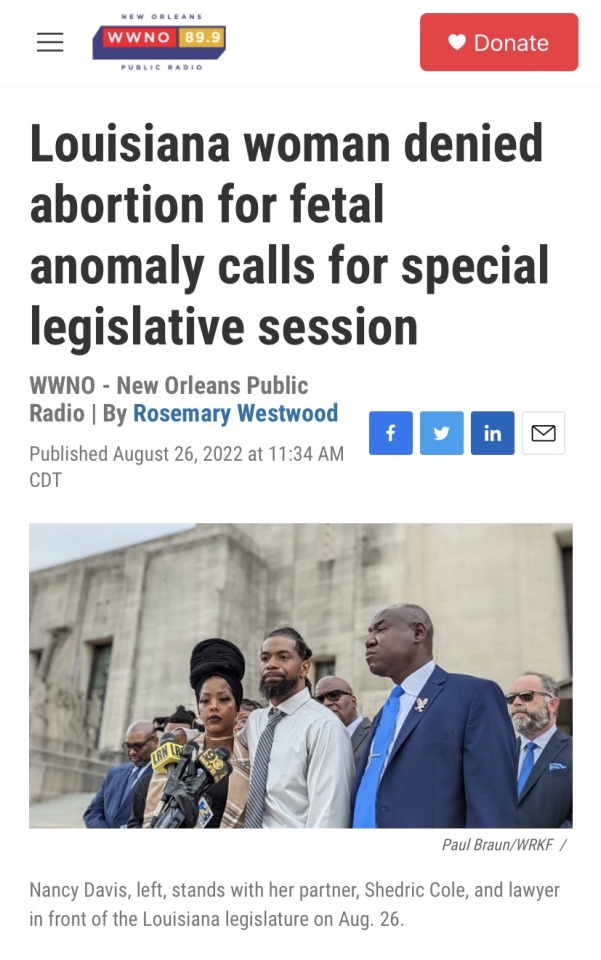
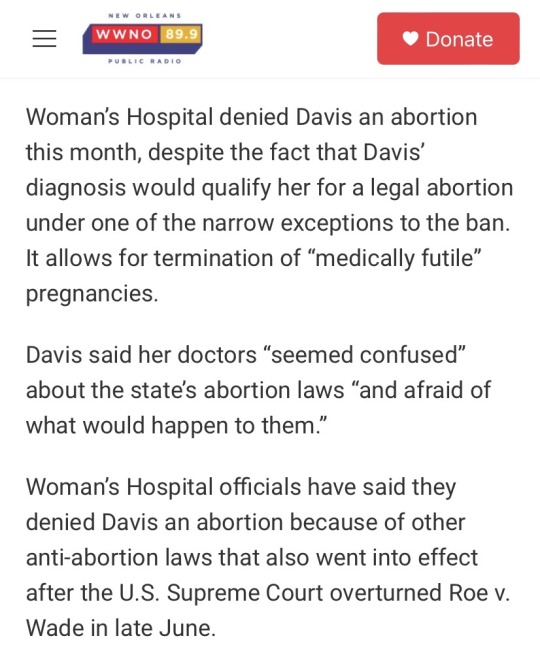



#nancy davis#louisiana#abortion#abortion trigger laws by state#state law#federal law#social commentary#QueenVLion#themore you know#Instagram#Youtube
5 notes
·
View notes
Text
It’s been hard to find the words but I suppose I should say something.
Honestly I’m so mad about the situation in the US right now. I’m thankful to live in a country where people have the right to end their pregnancy without justification.
Regardless of how you feel about the topic, abortion laws aren’t just for unplanned/unwanted pregnancies.
Without legal abortion people can be prosecuted for miscarrying
Without legal abortion ectopic pregnancies can’t be removed unless the law specifies this (which the ones in the works for some states do not)
Without legal abortion an already d**d or d*ing foetus cannot be removed
Without legal abortion, pregnancy complications become fatal
There are so many situations that these laws cover, and it’s heartbreaking how many people are going to suffer due to this awful legal decision.
#roe vs. wade#roe v wade#roe versus wade#abortion#safe abortion#pregnancy#state law#supreme court#overturned#womens rights#human rights
4 notes
·
View notes
Text
I cant believe this tweet is how I find out
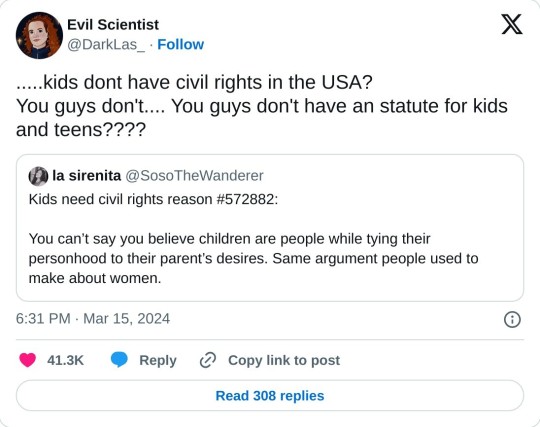
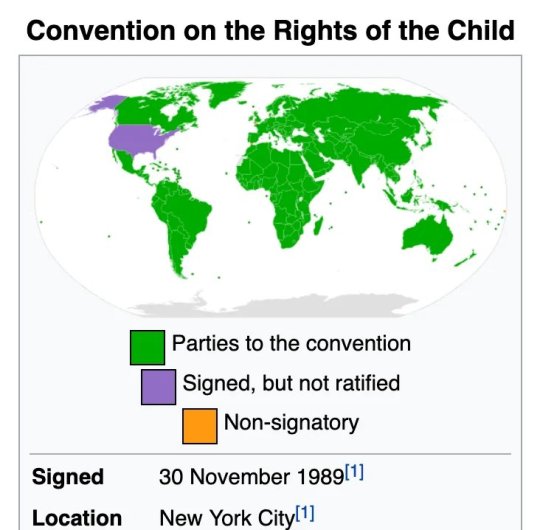
Edit: Now that we're talking about it, look. There is all the countries ratification dates, along with considerations for their laws.
And you can check the convention here.
Edit 2: For those in the US who want to check their state's laws compliance to the convention, there is this site.
Thank you people in the notes for the info and image desc.
29K notes
·
View notes
Text


Gnarmy Solider: O3C779
Code Name: Breeze
Crime: Honking car horn outside of sandwich shop after 9PM
#gnomes#random#army of gnomes#crafts#gnome post#gnomecore#shitpost#art#artist#artists on tumblr#crimes#real crime#state laws are crazy#good bois#gnome crafts#gnome crimes#true crime#beachlife#beach#state law#imagine#imagine causing problems#plush craft#sewing crafts#crafting#crimes against humanity#fantasy#woodland#creature#fae folk
1 note
·
View note
Text

0 notes
Text
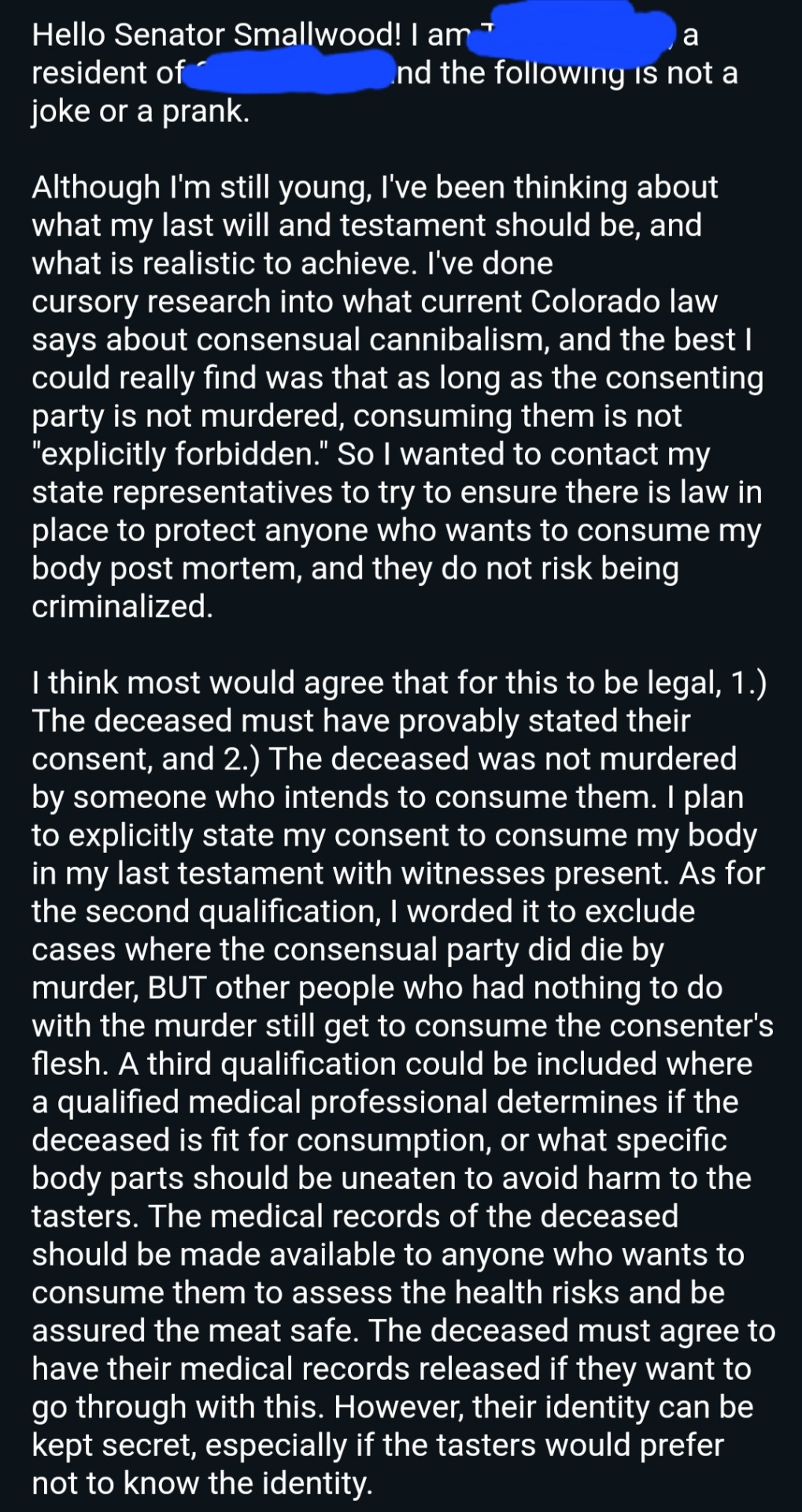

So I emailed one of my state senators. Fingers crossed! (Maybe I shouldn't have included the pun at the end but I couldn't resist). I don't really expect much from this, I would be a little surprised if he even replied.
Image id under cut
[image id: Screenshot of an email: Hello Senator Smallwood! I am redacted, a resident of redacted, and the following is not a joke or a prank.
Although I’m still young, I’ve been thinking about what my last will and testament should be, and what is realistic to achieve. I’ve done cursory research into what current Colorado law says about consensual cannibalism, and the best I could really find was that as long as the consenting party is not murdered, consuming them is not “explicitly forbidden.” So I wanted to contact my representatives to try to ensure there is law in place to protect anyone who wants to consume my body post mortem, and they do not risk being criminalized.
I think most would agree that for this to be legal, 1) The deceased must have provably stated their consent, and 2) the deceased was not murdered by someone who intends to consume them. I plan to explicitly state my consent to consume my body in my last testament with witnesses present. As for the second qualification, I worded it to exclude cases where the consensual party did die by murder, but other people who had nothing to do with the murder still get to consume the consenter’s flesh. A third qualification could be included where a qualified medical professional determines if the deceased is fit for consumption, or what specific body parts should be uneaten to avoid harm to the tasters.
The medical records of the deceased should be made available to anyone who wants to consume them to assess the health risks and be assured the meat safe. The deceased must agree to have their medical records released if they want to go through with this. However, their identity can be kept secret, especially if the tasters would prefer not to know the identity.
There could be more medical risk here than I can anticipate. It might also be recommended that the tasters sign a waiver. It would be largely left up to the family of the deceased or third parties to make the arrangements and advertise the tasting to whomever they want, and decide if they want to charge for it or not (in the latter case, or if too many people try to RSVP, they can be selected by lottery).
If this all sounds feasible to you, it would make me very happy to be able to offer this rare (or medium-rare) opportunity to people after I die.
Thanks for listening!
[name redacted] End image ID]
1 note
·
View note
Text

#international#law#international law#israel#free palestine#palestine#gaza#israel massacre#israel is a terrorist state#free gaza#occupied palestine#us#united states#us government#fuck israel#south africa#yemen#news on gaza#mems#facts#important#humans rights
9K notes
·
View notes
Text
Mayor Adams Faces Lawsuit from NYC Teachers' Union Over School Budget Cuts
New York City’s teachers union, the United Federation of Teachers (UFT), is taking legal action against Mayor Eric Adams over his proposed budget cuts to the city’s public schools. The union’s lawsuit, filed in state court, claims that these cuts, totaling $550 million, would significantly harm essential education programs and violate state law.
Key points of the lawsuit include:
Alleged…

View On WordPress
0 notes
Text
Depends on the state that the children (and the adults with them) are in.
0 notes